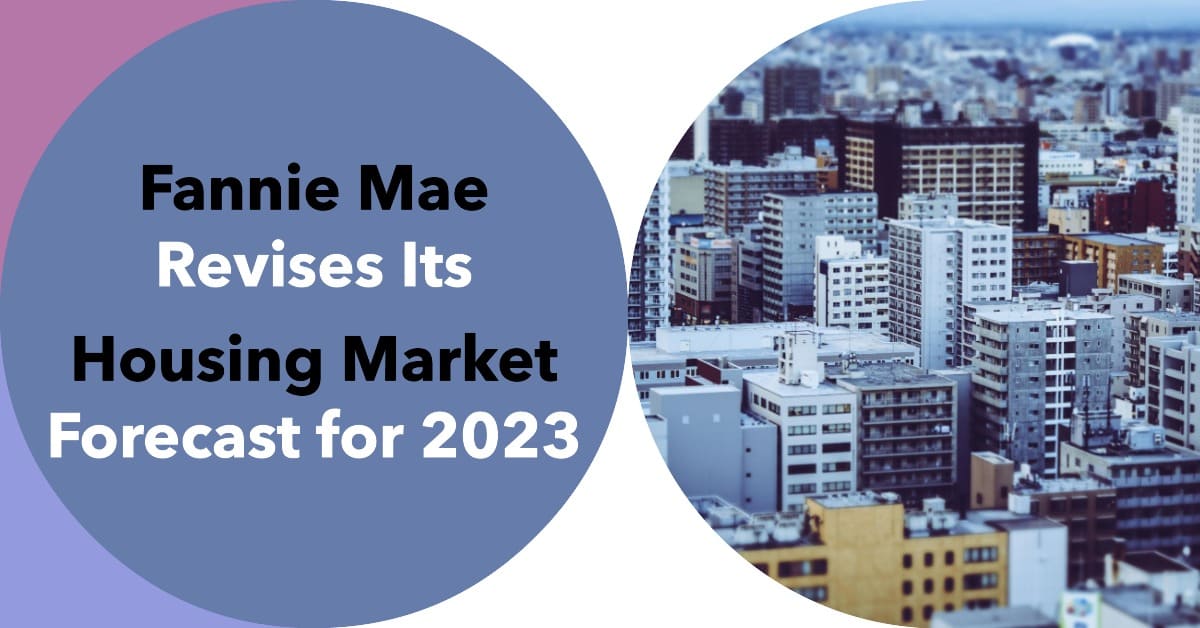
The 2023 housing market predictions by Fannie Mae provide a glimpse into a market navigating through challenging waters. Despite the hurdles posed by soaring mortgage rates, the housing market has demonstrated resilience. However, caution is essential as we move into 2024, with expectations of a slowdown.
Table of Contents
Factors Influencing the Housing Market
The housing market is influenced by various factors, and the fluctuation in mortgage rates is a significant contributor. As mortgage rates surge past 7%, they are expected to impact the housing market in 2023 and beyond. Affordability constraints are becoming more pronounced, making it challenging for potential buyers to enter the market.
Fannie Mae's Economic and Strategic Research Group anticipates that the higher mortgage rate environment will dampen housing activity, complicating affordability into 2024. This situation is a result of a substantial surge in housing activity experienced in the years between mid-2020 and mid-2022, with much of that momentum now being reined in.
Challenges and Resilience in the Housing Market
The resilience of house prices, despite the challenges posed by higher mortgage rates and affordability issues, showcases the underlying strength of the housing market. This unexpected resilience might be attributed to a combination of demand-supply dynamics, economic policies, and evolving consumer preferences.
However, experts caution that this resilience may face a test as the mortgage rates continue to rise. The slowdown in the housing market anticipated in 2024 underscores the need for potential buyers to carefully assess their options and plan their investments.
The Federal Reserve's Role and Economic Outlook
The Federal Reserve plays a pivotal role in shaping the economic landscape. The recent swift rise in interest rates has drawn attention to the Federal Reserve's stance on rate hikes. They have conveyed a commitment to keeping rates “higher for longer” until annual inflation stabilizes at 2%. This strategy is aimed at managing inflation and ensuring economic stability.
However, this approach also comes with potential economic dislocations, as witnessed in the past with similar interest rate hikes. Economists, including Doug Duncan from Fannie Mae, anticipate a mild economic downturn in the first half of 2024 due to the abrupt rise in interest rates.
Impact on Consumer Behavior
The 7% mortgage rates are expected to have a profound impact on consumer behavior. As interest rates continue to rise, consumer consumption and business investments may slow down due to increased debt costs. This could lead to a decrease in home sales as potential buyers may reconsider their purchase decisions in light of higher borrowing costs.
Fannie Mae's research group points out that the recent rapid rise in interest rates can potentially lead to economic dislocations, even though the consumer has shown resilience. The rate hike has brought to the forefront the importance of careful economic management to ensure a smooth transition.
Long-Term Housing Market Forecast and Economic Stability
The long-term forecast for the housing market depends on various factors, including how the Federal Reserve manages interest rates and inflation. While there may be short-term challenges, experts believe in the potential for the economy to stabilize in the long run. The Federal Reserve's commitment to a “soft landing” indicates its determination to manage the economy and prevent sharp economic downturns.
However, achieving this requires a delicate balance and effective policy implementation to mitigate the impact of rising rates on the housing market and the broader economy.




